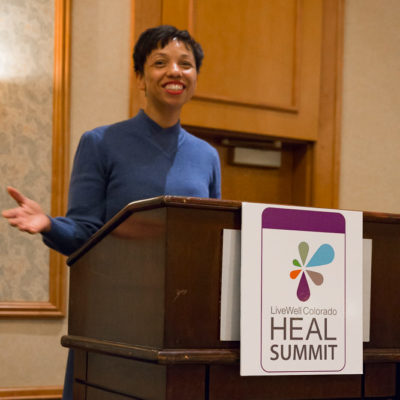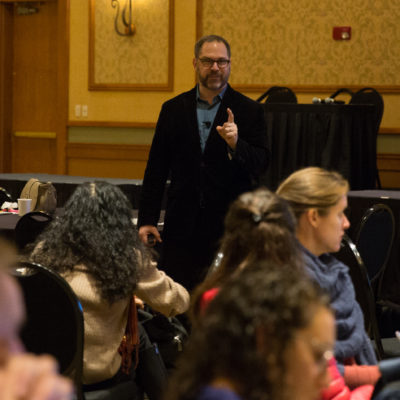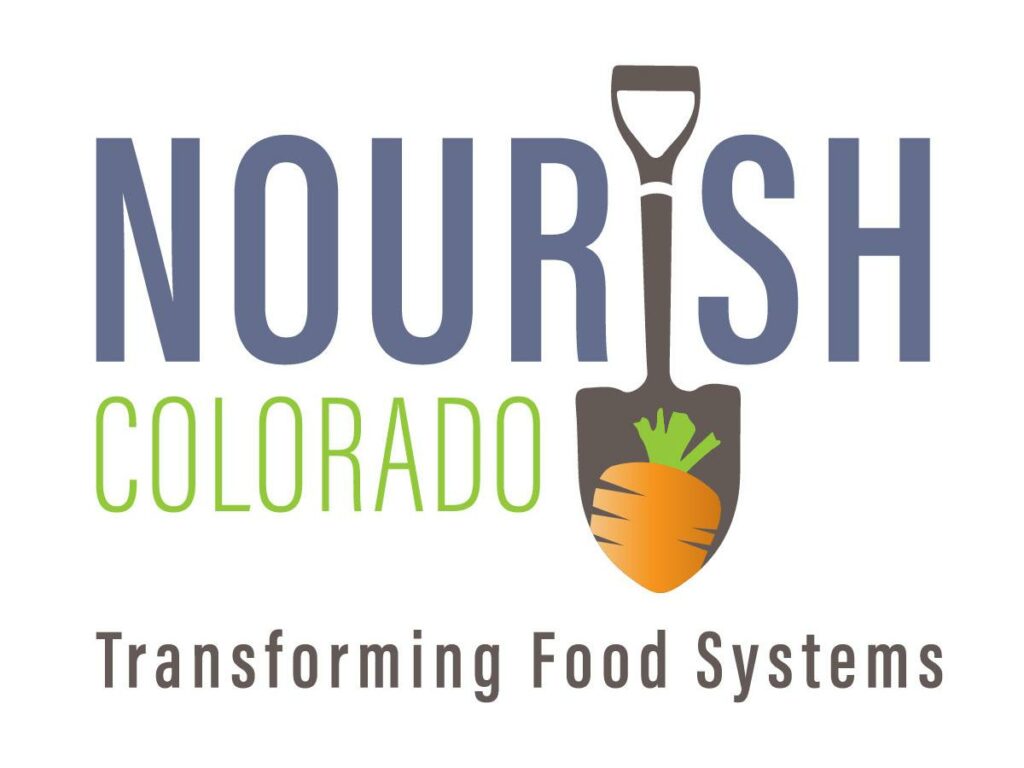2018 HEAL Summit Recap
 The 2018 HEAL Summit was a great success. With over 170 participants, this was the largest Summit yet. Both days started with impactful messages from our keynote speakers: Qiana Mickie, Executive Director of Just Food and Paul Schmitz, CEO of Leading Inside Out. Both speakers shared important, useful thoughts on leadership and inclusiveness. Qiana discussed the importance of lifting up all voices. She challenged us to use the positions we hold to empower those whose voice is not at the table and push back against those who have positions of power and “take up all the air.” She also shared why words and terms matter and the importance of changing the dialect in order to value all people. For example, rather than saying “low-income” or “poor,” both of which have negative connotations, use the term “under resourced,” as that term more accurately illustrates that these sectors of the community have historically been provided with insufficient resources or kept from resources. She noted that leadership is not tied to higher education degrees or social status, but instead to our lived experiences that present opportunities for all to lead if given the opportunity.
The 2018 HEAL Summit was a great success. With over 170 participants, this was the largest Summit yet. Both days started with impactful messages from our keynote speakers: Qiana Mickie, Executive Director of Just Food and Paul Schmitz, CEO of Leading Inside Out. Both speakers shared important, useful thoughts on leadership and inclusiveness. Qiana discussed the importance of lifting up all voices. She challenged us to use the positions we hold to empower those whose voice is not at the table and push back against those who have positions of power and “take up all the air.” She also shared why words and terms matter and the importance of changing the dialect in order to value all people. For example, rather than saying “low-income” or “poor,” both of which have negative connotations, use the term “under resourced,” as that term more accurately illustrates that these sectors of the community have historically been provided with insufficient resources or kept from resources. She noted that leadership is not tied to higher education degrees or social status, but instead to our lived experiences that present opportunities for all to lead if given the opportunity.
 Similarly, Paul noted in his interactive presentation that “leadership is an action, not a position” and he likened leadership to a muscle – the more it’s used, the stronger it becomes. He then demonstrated that social change requires a network of leaders working together. He illustrated this through his example of the civil rights movement. While we tend to think a few, known people were the “leaders” of the civil rights movement, Paul showed how it took a variety of leaders, many of whom were, and are, unknown “rank and file” supporters to bolster the more formal leadership names like Dr. Martin Luther King Jr. and Rosa Parks. With all the civil rights supporters exercising their leadership muscles together, great results were realized. Importantly, both Qiana and Paul stressed that we need to look for leadership where no one else is looking. That there are many assets in communities being overlooked and a need to start with the assets, rather than the perceived deficits when working to bring social change.
Similarly, Paul noted in his interactive presentation that “leadership is an action, not a position” and he likened leadership to a muscle – the more it’s used, the stronger it becomes. He then demonstrated that social change requires a network of leaders working together. He illustrated this through his example of the civil rights movement. While we tend to think a few, known people were the “leaders” of the civil rights movement, Paul showed how it took a variety of leaders, many of whom were, and are, unknown “rank and file” supporters to bolster the more formal leadership names like Dr. Martin Luther King Jr. and Rosa Parks. With all the civil rights supporters exercising their leadership muscles together, great results were realized. Importantly, both Qiana and Paul stressed that we need to look for leadership where no one else is looking. That there are many assets in communities being overlooked and a need to start with the assets, rather than the perceived deficits when working to bring social change.
Not to be outdone by the keynotes, the other general session and breakout presentations were equally informative and many provided excellent examples of community leadership at work to bring improved access to healthy living. Session presenters came from a variety of organizations, including public health, non-profits, public education, and the private sector. Municipal presentations included:
- The Colorado Springs team of Brian Kates, Parks Operations Administrator, and Kate Brady, Senior Planner and Bicycle Coordinator, discussed how the City of Colorado Springs, through leadership and innovation, overcame drastic budget cuts that decimated most city services, including parks and recreation in the early 2000s to now be an Elite HEAL City;
- Taeler Houlberg, Special Projects Coordinator for the Town of Bennet, gave an inspiring “Fast and Furious” presentation on ways the town is improving overall well-being of employees through healthy workplace practices that include allowing new parents to bring their infant to work with them to ease the transition between welcoming a new baby to the family to going back to work;
- Matt Anderson, Parks and Recreation Analyst for the City of Wheat Ridge, on how they are using policy, partners, and programs to build a healthier community;
- Jamie Hackbarth, Colorado Office of Economic Development and International Trade, set the stage for Kayla Gilbert, Denver Department of Public Health and Environment and Mathew Mendisco, Town of Hayden Economic Development Interim Executive Director, to provide insights and examples on how both municipalities are benefiting economically by utilizing healthy community design;
- Jody Beck, Associate Professor, UC Denver Department of Landscape Architecture, and Sarah Washburn, City of Arvada Manager of Parks and Urban Design, talked about the process to pass Arvada’s unique Community Agriculture Master Plan;
- Jennifer Moreland, Denver Public Health, along with Naomi Amaha, American Heart Association, and Hillary Jorgensen, Healthier Colorado discussed three different approaches to local interventions to improve public health, specifically focused on sugar sweetened beverages.
LiveWell is looking ahead to the 2019 HEAL Summit and hopes to see many familiar and new faces attend once again. PowerPoint presentations and materials from the 2018 HEAL Summit can be accessed on our web site here.
